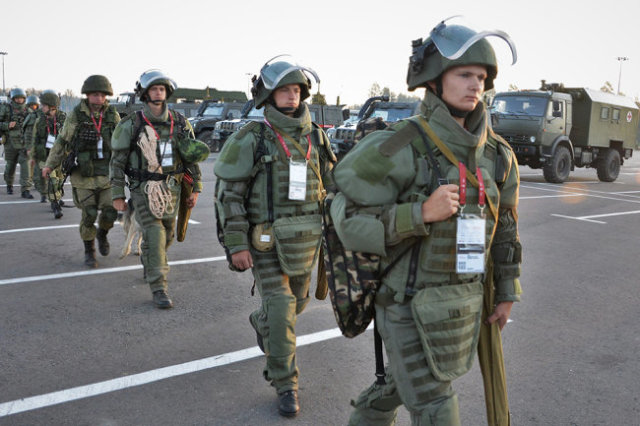Specialists of the International Mine Action Center of the Armed Forces of the Russian Federation again flew to Laos to help local colleagues from the U-58 detachment in clearing the territory of explosive objects.
The southern business trip will last several months. A special detachment was formed to work in Laos, which included more than 30 experienced sappers. They will have to explore dozens of hectares of terrain. It is not easy to bypass them with mine detectors, but to extract from the ground and neutralize unexploded bombs and mines lying at a depth of 40 centimeters to two and a half meters on the spot or at specialized landfills. All this "economy" has remained in Laos since the American bombing of 1964-1973.
The complexity of the operation lies not only in the scale of engineering work, but also in the high concentration of unexploded ordnance and their components in the ground. Sappers have to respond to every signal of search tools, dig out, identify and determine the degree of danger of each such object.
Modern means of detecting explosive objects will help our military in dangerous work. In particular, the selective portable induction mine detectors IMP-S2, magnetometric bomb detectors MBI-P2, deep mine detectors MG-1I and portable proximity explosive device finders INVU-3M. As for the safety of the sappers themselves, they brought combined-arms demining and protection kits OVR-2-02 to Laos.
Recall that this is not the first trip of Russian military engineers to this country. More precisely, they will arrive in Laos for the fourth time. During previous trips, our sappers examined several hundred hectares of terrain and found a large number of explosive objects there - mostly American cluster bombs.
The Ministry of Defense of the Russian Federation reported that it is planned to re-deploy a branch of the International Mine Action Center of the Russian Armed Forces in Laos. "Lao servicemen will undergo theoretical training using Russian means of search and protection of a sapper, as well as master their practical application on the ground together with Russian colleagues," the ministry explained.
Yuri Gavrilov

